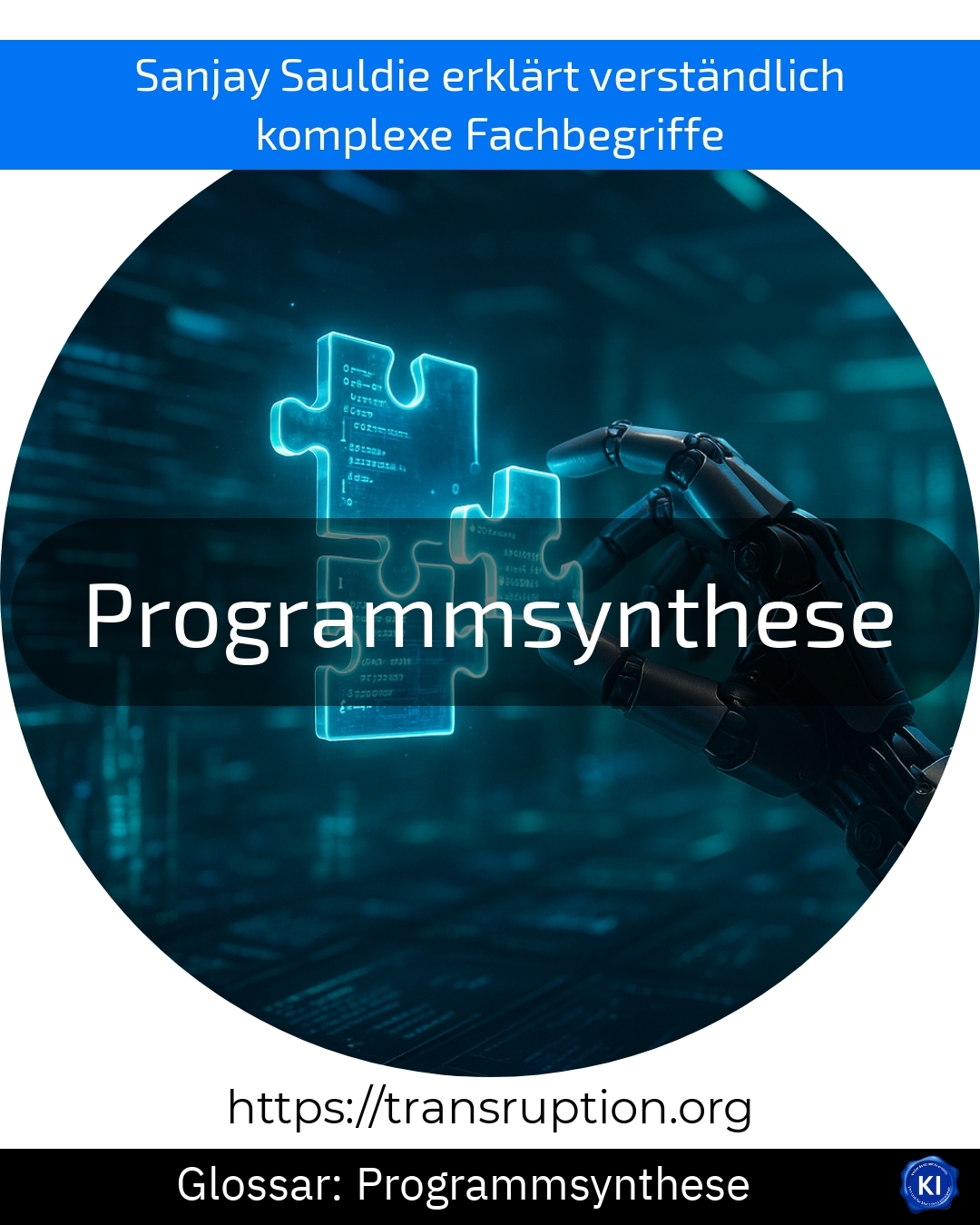The term programme synthesis belongs to the field of artificial intelligence, automation and Industry and Factory 4.0. Programme synthesis describes a process in which computers are used to automatically create small software programmes without humans having to programme each individual step by hand.
So instead of writing all the commands themselves, the user only describes the desired goal or result. The programme synthesis software then uses algorithms to independently search for a suitable programme that fulfils this task. This saves time, reduces sources of error and enables faster innovation.
An illustrative example: Imagine you want to set a machine so that it only rejects fault-free products. You tell the programme synthesis what is considered "error-free". The software generates a programme that fulfils this requirement and can be used immediately.
Programme synthesis is used in industry in particular to control production systems more flexibly and intelligently. In software development, too, this approach can help to speed up processes or create customised solutions at the touch of a button. Programme synthesis is therefore an important building block for modern, automated working environments.















